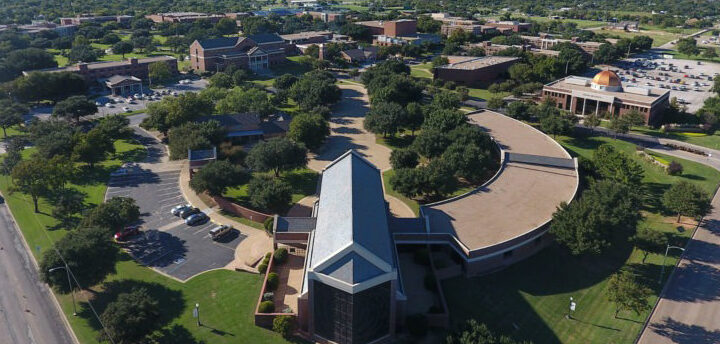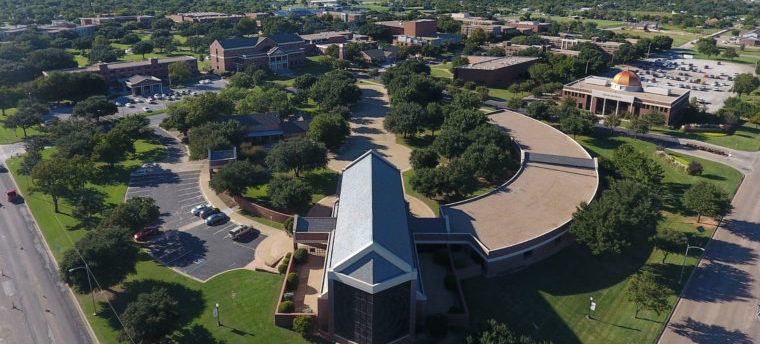As a graduate of Hardin-Simmons University’s class of 2019, I recently became aware of the board of trustees newly released Statement of Faith, which was adopted on May 19, 2022. Of particular note is the trustee’s declaration on sexuality and marriage.
There are several reasons I find this statement of faith troubling. I believe it represents poor biblical scholarship, a self-serving weaponization of Scripture and tradition, and attitudes antithetical to those of the biblical prophets, including Jesus, who repeatedly challenged and critiqued texts and traditions that failed to produce meaningful fruit in their contexts.

Madison Boboltz
Furthermore, it is rather telling that sexuality and marriage are the only politically charged issues mentioned in the statement. For example, there are no commitments to antiracism mentioned.
I also am frustrated with the fact that, while these beliefs may be held among leadership who are concerned with preserving favor among theologically conservative constituents, they are not shared across the wider HSU community, which represents a beautiful variety of theological beliefs and expressions of faith.
But most importantly, I believe these statements, which provide a narrow definition of gender and limited outline of acceptable sexual and marital practices, will cause significant harm to members of the HSU community.
“These statements, which provide a narrow definition of gender and limited outline of acceptable sexual and marital practices, will cause significant harm to members of the HSU community.”
First, a public statement such as this sanctions harmful prejudice against those who identify as part of the LGBTQ community. This statement does not erase LGBTQ students from campus — it only exacerbates homophobic and transphobic attitudes that contribute to a culture and learning environment that puts their safety and well-being at risk.
Next, this statement promotes shame and perpetuates judgment against those who are sexually active outside the confines of marriage. Again, this does not stop college students from having sex — it only instills or worsens attitudes of fear and shame that disrupt their freedom to make safe and self-assured decisions.
Furthermore, this statement insinuates that there may be consequences for a student who makes choices that do not align with this “statement of faith.” For instance, some students become pregnant or have children outside of marriage. Based on this statement, such students may fear facing social rejection, religious backlash and academic consequences in ways that may deter them from seeking the social support they need to pursue their studies.
Finally, it already is so difficult for students to report incidents of sexual assault. This statement makes it even more difficult for those who do not feel supported by the university, either because they are afraid to disclose that they have had consensual sex on previous occasions, or because they are afraid to disclose their identity as part of the LGBTQ community.
Students who fall into these categories likely already have experienced adversity and discrimination in their academic careers. It is therefore perfectly understandable that upon hearing about this statement, they will fear for their safety on campus, as well as their right to equal opportunity as student workers or campus leaders.
Many of these students are not protected under the university’s nondiscrimination clause. In 2015-2016, President Lanny Hall requested and was granted a federal exemption from the Department of Education, which allows the university lawfully to discriminate on the basis of marriage, premarital sex, sexual orientation, gender identity, pregnancy and abortion. (Linked here are his request and the response).
I and others have long been concerned about this exemption, as well as language present within the Student Handbook. For example, the following policy, which previously fell under the section on Sexual Misconduct, now falls under Residential Policies. This statement sanctions disciplinary actions for any student who acts contrary to the trustees’ “biblical view”:
As an institution, HSU holds the value that the act of sex should be reserved for marriage between a man and a woman. Any sexual act outside of this definition is outside the bounds of how we interpret God’s word in the Bible. Education of a biblical view of sexual relations is the outcome that we seek. When a complaint or violation of the policy shows that a student acted outside of our biblical values of dignity and respect, we will address the conduct and hold students accountable. (Section 21.7)
Despite advocacy efforts made by students, faculty, staff and alumni, this language has not been removed. And given the recent publication of the new statement of faith, it seems trustees are doubling down rather than reconsidering their position. Perhaps they even hope to enforce their policy with greater fervor. This would be deeply disgraceful.
“I know I am not alone in expressing disappointment in the ways in which the trustees and other administrators have chosen to exercise their power and shut down any possibility of promoting more inclusive policies.”
Students whose beliefs and actions do not align with this “Statement of Faith” should not fear disciplinary or discriminatory actions that impair their health and well-being, nor their academic or vocational potential. I remember many tearful exchanges with students, during and after my time at HSU, who were scared and reluctant to reach out for life-saving support and care because they were worried they might lose their jobs or be expelled.
I know I am not alone in expressing disappointment in the ways in which the trustees and other administrators have chosen to exercise their power and shut down any possibility of promoting more inclusive policies. I sympathize with university employees who, despite these policies, are committed to protecting their students against prejudice, judgement, violence and discrimination.
I pray they promote equality and acceptance among students, helping them navigate this broken system with grace and compassion. I hope these students who feel targeted and impacted by this statement are empowered by members of the HSU community to be their full, authentic selves. They are not alone.
Madison Boboltz graduated from Hardin-Simmons University in Abilene, Texas, in December 2019. There, she studied religion at Logsdon School of Theology. Currently, Madison is attending seminary at Boston University’s School of Theology and is a certified candidate for ordained ministry in the United Methodist Church. She plans to return to central Texas for ordination and begin her career as a pastor.
Related articles:
Where I found acceptance as a woman, others now find rejection | Opinion by Madison Boboltz
My story of being trans and the conservative Baptist school that made me that way | Opinion by Triss Ingels
West Texas Baptist university adopts new faith statement with strict emphasis on gender and marriage


